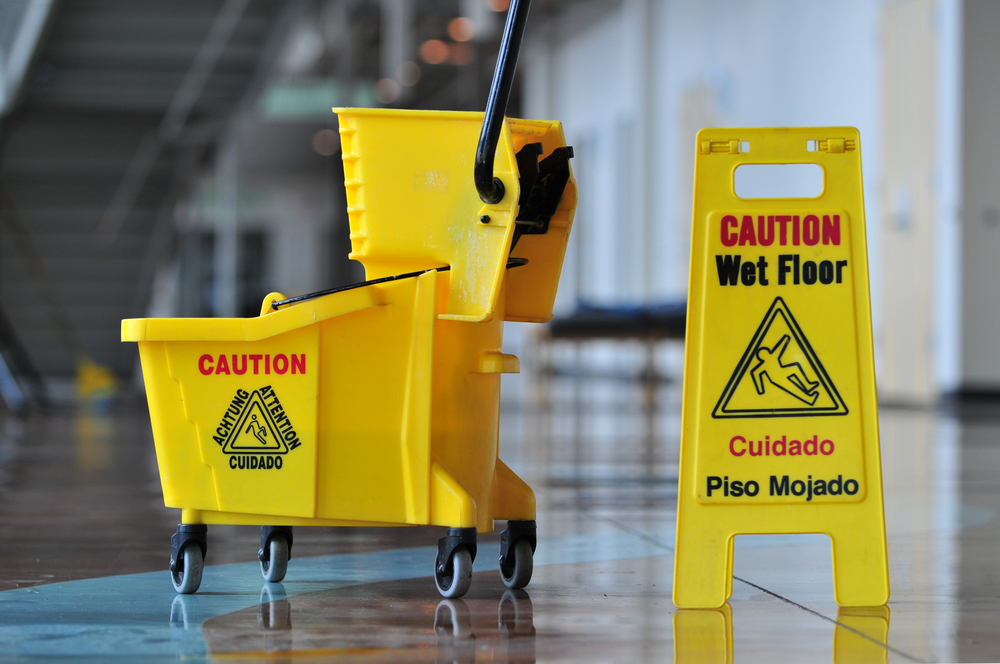Floors must be mopped, polished and waxed. People drop glasses and bottles, causing liquid to spill. People track in water when it rains or snows. All of these situations can lead to a slippery floor situation that can cause you to slip and fall. When you are injured after slipping and falling, you may wonder if you have a claim against the property owner. In order to determine whether you may have a claim, there are some questions that must be answered.
Was the Floor Unreasonably Slippery?
Even if the floor was wet or had just been polished, your slip and fall may not qualify as a premises liability claim unless you can prove that the owner was negligent. The floor must have been unreasonably slippery or there must have been no warnings that the potential for a slippery floor existed. You must also demonstrate that the owner knew or had reason to know that the floor was slippery and presented a danger.
Why Was the Floor Slippery?
It is important to determine what it was that made the floor slippery when considering a premises liability claim. If you don’t know what it was you slipped on, it may be difficult to prove that the owner should have known the substance was there. Water or other liquids as well as grease or oil could cause a slippery condition. Floor wax or polish are also sometimes responsible for slip and fall injuries. It could also be food debris or other objects that had been dropped in a walkway. Try to determine what was on the floor at the time you slipped and, if possible, take pictures of the substance as documentation.
How Long Was It There?
One key piece of evidence you will need is how long the floor had been slippery before you fell. The longer the substance was there, the better chance you have of proving negligence. If someone spills water in a grocery aisle and you slip seconds later, the owner could not reasonably have known the spill was there and may not be held liable. However, if the spill had been there for several hours, the owner could be held liable as it is reasonable to assume one of their employees had noticed the water but failed to clean it.
Were There Warning Signs?
There are times when it is unavoidable for a floor to be slippery, especially in a business. The floor may have been waxed or polished recently. A recent snowstorm may have tracked water into the entrance. The business owner should place warning signs that the floor is wet and a slip hazard exists. If they do not place such signs, they could be held liable for your injuries. However, a warning sign does not automatically eliminate the owner’s liability in all cases. For example, if a business owner polishes a floor on a rainy day at lunchtime, when many employees may be walking on that floor, a slip and fall could be considered a premises liability claim as the owner should have known rainy weather could increase the chance of wet floors on top of a recently polished floor.
Did You Know the Floor was Slippery?
If you were aware the floor was slippery and walked across it anyway, it is possible you will be considered completely or partially at fault in your accident. For instance, if there were warning signs and you stepped on the wet portion of the floor rather than dry areas around it, the owner may not be found responsible.
If you or a loved one has been injured in a slip and fall on a slippery floor, contact Lundy Law today to learn what rights you may have. You may arrange for an initial consultation by calling 1-800-Lundy Law or completing the easy form on our website.











